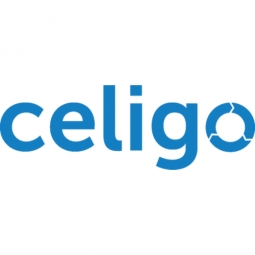Download PDF
Ready Seal Streamlines Salesforce Adoption with Celigo’s Integration Platform
Technology Category
- Application Infrastructure & Middleware - Data Exchange & Integration
- Application Infrastructure & Middleware - Middleware, SDKs & Libraries
Applicable Functions
- Maintenance
- Sales & Marketing
Use Cases
- Supply Chain Visibility
- Tamper Detection
Services
- System Integration
The Challenge
Ready Seal, a company specializing in wood stain and sealer products, was facing a challenge in adopting Salesforce as their CRM service provider. The company used NetSuite to process orders from distributors and wholesalers, but their sales organization needed a better CRM that could be accessed remotely from mobile devices. NetSuite’s native CRM capabilities did not meet their needs. However, using a separate CRM from their ERP systems would create a gap in associating orders to emails and limit data access within the organization. The challenge was to find a way to synchronize Salesforce with NetSuite quickly and easily.
About The Customer
Ready Seal is a company based in Lewisville, Texas, specializing in wood stain and sealer products. They sell their products to distributors, wholesalers, and hardware stores nationwide and have recently begun expanding into Canada and the Caribbean. The company uses NetSuite to process orders from its distributors and wholesalers. However, they found that NetSuite’s native CRM capabilities did not meet their needs, leading them to seek a better CRM solution that could be accessed remotely from mobile devices. This led them to consider adopting Salesforce as their CRM service provider.
The Solution
To solve this challenge, Ready Seal turned to Celigo, a well-known and trusted service provider recommended by their service providers. Celigo offered a pre-built Salesforce-NetSuite Integration App that perfectly fit Ready Seal's requirements. This app allowed Ready Seal to integrate Salesforce and NetSuite right out of the box without adding any logistical challenges. The integration gave Ready Seal’s sales organization total visibility into their customers’ activity. Once an order was placed into NetSuite, Celigo took over and synchronized it back to Salesforce, providing sales reps with all the invoice information and other details. This automated data exchange greatly improved Ready Seal’s operational efficiency and internal cohesiveness.
Operational Impact
Quantitative Benefit
Related Case Studies.

Case Study
Remote Temperature Monitoring of Perishable Goods Saves Money
RMONI was facing temperature monitoring challenges in a cold chain business. A cold chain must be established and maintained to ensure goods have been properly refrigerated during every step of the process, making temperature monitoring a critical business function. Manual registration practice can be very costly, labor intensive and prone to mistakes.

Case Study
Retail Uses RFID to Enable Cold Chain Monitoring
Like most grocery retailers, Hy-Vee is faced with the challenge of providing the highest quality products to its shoppers. Shoppers want the longest possible shelf life from perishable products and expect a consistent product experience each time they shop. Controlling the quality of products sold leads to shopper loyalty, which is of paramount importance to the success of Hy-Vee. Before products arrive in stores, Hy-Vee's distribution centers (DCs) handle items including dairy products, fresh meats, seafood, deli items, produce and frozen goods, all of which have different temperature needs and sensitivities. During transit from suppliers to DCs, Hy-Vee has limited visibility and temperature management abilities due to large amount of supplier managed transportation. For instance, during a week-long transit, a supplier's carrier equipment may malfunction, causing an item to thaw and then refreeze once repairs are made. Hy-Vee sought help from TempTRIP, an RFID solution provider that focuses on shipping, storage, receiving, and temperature control. TempTRIP's EPC RFID tags use Impinj chips to monitor and report temperature readings throughout the shipping and receiving process. The tags can also be re-configured and re-used, a unique feature within the current market of temperature monitoring devices.

Case Study
Covisint Improves Mitsubishi's Collaboration With Its Supply Chain
Mitsubishi sought to improve supplier relationships on a global basis and to offer an easy-to-use solution to interact with them. In August 2004, Mitsubishi selected Covisint’s platform to help improve sharing of information and collaborative business processes with its global suppliers. Covisint enabled Mitsubishi to provide its suppliers with immediate access to information and applications to obtain more collaborative working relationships








